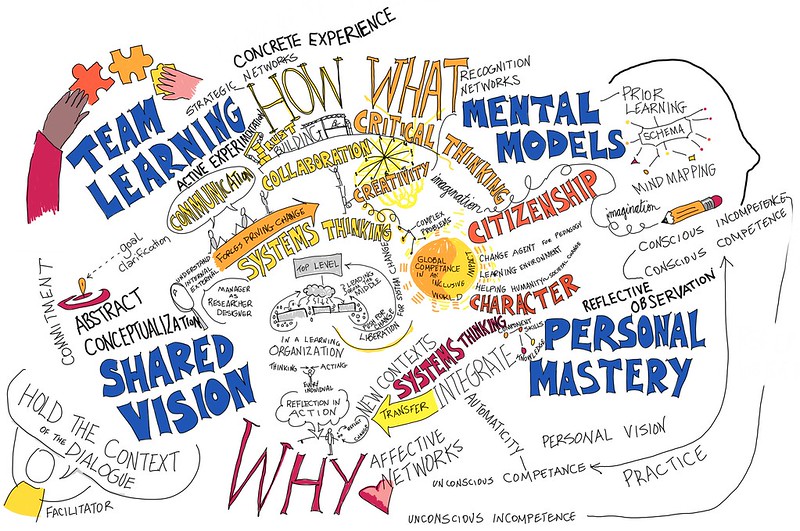As a teacher it’s important to have an understanding of how individuals learn and the different factors that might affect and influence learning. There are various learning theories and philosophies that have emerged over the centuries which have influenced teaching. Some argue that with the advent of the digital age we need to be developing new theories, whilst others make a good case for applying existing theories to how we use technology in education. Whilst there isn’t time in a four week SSC to look at learning theories in any great detail we can start to gain some awareness of them and consider how they might influence the design and style of the learning resource or activity that you will develop.
THINKING ABOUT HOW YOU LEARN
We’ve already discussed the roles of the teacher and what makes a good teacher, now take a few moments to think about
- how you learn?
- the spaces and environments where you learn – classrooms, clinical skills, hospital wards, primary care, online
- the types of learning activities you find most effective or enjoyable, for example lectures, small group teaching, ward-based teaching, reading, assessment, reflection
- the people that support your learning
- the different areas and domains in relation to knowledge, skills and professionalism you are expected to learn as a medical student and the different way that these are taught and learnt.
Keep a note of your responses to these points and think about them as you go on to explore a few learning theories.
INTRODUCING SOME LEARNING THEORISTS
There are lots of learning theorists and countless books detailing their theories. To get started you could check out articles on learning theories on Wikipedia but I’d like you to read Taylor and Hamdy’s helpful overview of some adult learning theories in an AMEE Guide they published. They’ve categorised various theories and considered the implication of them in medical education. Have a read of this guide to get an overview of some of the theories and how they relate to medical education.
As you read through this AMEE Guide note 3 or 4 theories which spark your interest to research in more detail. You can do your own searching and investigating or you can refer to Donald Clark‘s collection of blog posts that formed his Donald Clark Plan B – Blog marathon: 50 blogs on learning theorists over 50 days and select 3 or 4 from his list. Donald has a long association with technology enhanced learning and has spoken at many NHS and medical education events. In this series of blog posts he highlights the theories that are particularly relevant to e-learning. He also features other educational theorists and philosophers on his blog.
If you can’t decide which ones to look at here are some that might be of interest:
- Socrates– Method man
- Dewey– practical problem-based learning
- Vygotsky– zone of proximal development
- Bandura– social learning and self-efficacy
- Mayer and Clark– digital media theory
As you read, think about these theories in relation to your own learning experiences and the type of learning resource or activities you’re hoping to design and create on this SSC or student project. Note down your thoughts on your blog.
LEARNING THEORIES AND TECHNOLOGY IN LEARNING
This short paper from Sandars et al (2014), “The importance of educational theories for facilitating learning when using technology in medical education“, looks briefly at how some of these learning theories underpin some learning approaches that involve technology. It touches on Dewey, Mayer and Clark’s digital media theory as well as situativity theory and connectivism, a learning theory that suggests we learn through connecting with networks of nodes that include people, organisations and information.
One final theory to mention and take a look at is Lave and Wenger’s Community of Practice theory which takes a social perspective of learning involving participation situated typically in a workplace and very pertinent to how doctors learn in practice. Reflect on whether you feel there is a community of practice in the medical school, how you contribute to it and how technology might support it.
References
Siemens, G., 2004. Connectivism. A Learning Theory for the Digital Age. In eLearnSpace.
Image credit – “The Learning Organization: A Lit Review” flickr photo by giulia.forsythe https://flickr.com/photos/gforsythe/42907807575 shared under a Creative Commons (BY) license

This work is licensed under a Creative Commons Attribution-NonCommercial-ShareAlike 4.0 International License.
Updated January 2024
